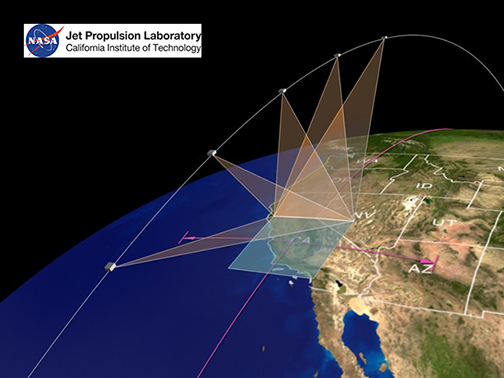
General Atomics Electromagnetic Systems (GA-EMS) has been awarded a contract from NASA to host the agency’s Multi-Angle Imager for Aerosols (MAIA) instrument on a satellite designed by GA-EMS.

NASA’s MAIA payload will be delivered and integrated on the Orbital Test Bed (OTB)-2 spacecraft at GA-EMS’ Englewood, Colorado, facility. GA-EMS will perform services to include payload integration, satellite testing and MAIA pre-launch processing, spacecraft and launch vehicle coordination,on orbit checkout, and on orbit spacecraft operations enabling instrument operations.
GA-EMS’ hosted satellite services provide a unique opportunity for customers to launch experimental hardware and payloads into Earth orbit without incurring the overhead of commissioning a full satellite mission. GA-EMS provides a breadth of experience in small satellite mission experience and services to include early concepts through to on-orbit operations.
Scheduled for launch in 2022, MAIA’s planned three to five year on orbit operation will measure particulate matter to allow correlation with adverse human health issues such as cardiovascular and respiratory disease. MAIA is a Venture-class investigation within NASA’s Earth System Science Pathfinder Program at the agency’s Langley Research Center in Virginia. NASA’s Jet Propulsion Laboratory in Pasadena, CA is responsible for MAIA instrument design, development, and delivery.
Executive Comments
Scott Forney, the President of GA-EMS, said that the company developed a successful working relationship with the NASA team, hosting their Deep Space Atomic Clock (DSAC) on the company's Orbital Test Bed satellite. The firm is excited to be working with NASA’s team once again to apply the company's innovations in modular satellite design to support MAIA’s planned multi-year mission to gather critical data for researchers to analyze pollution’s effect on the human population.
Nick Bucci, VP for GA-EMS Missile Defense and Space Systems, added the company designs provide lower-cost access to space while helping customers keep pace with the demand to launch technologies, such as the MAIA and DSAC, to advance NASA’S research goals. The company's paradigm-shifting approach to small satellite design, coupled with the firm's operational flight experience and focus on high mission assurance, allows GA-EMS to create tailored solutions in a shorter timeframe.

